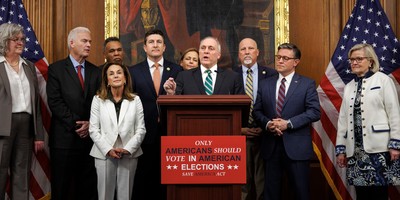*Co-authored by Col. (Ret.) Wes Martin, Former Antiterrorism/Force Protection for Coalition Forces–Iraq
The breaking news is in the title: “The Turning Tide.” On Sep. 12, 2016, Secretary of State John Kerry made a statement that reflected a shift away from the Iranian regime in favor of its main opposition when he announced in unusually favorable language that the Mujahedeen e-Khalq, or MEK departed from Camp Liberty and safely arrived in Albania. Kerry said a “significant American diplomatic initiative…has assured the safety of more than 3,000 MEK members whose lives have been under threat.” The tide has turned.
Backing up the Secretary are tireless efforts of UN envoys, American diplomats, and former officials to give meaning to the UN doctrine of “Responsibility to Protect.”
The United Nations High Commissioner for Refugees (UNHCR) eventually came onto the side of Iranian dissidents. Although States are obligated for the safety of civilians on its territory, the international community has responsibility to assist States. Consider prior activities of main players in the drama of refugee resettlement.
Baghdad held Iranian dissidents in prison-like custody in camps Ashraf and Liberty, although they committed no crimes. Iranian dissidents have been attacked by Iraqi forces in 2009, 2011, and 2013, forces that held them under “protective” custody. The attacks raise the question of “Who will guard the guardians?”
Think of the history and reasoning behind responsibility to protect for this case.
First, during 2004, Washington provided each dissident with an ID card stating the U.S. military would protect them based on Article 27 of the 1949 Fourth Geneva Convention for the protection of civilians caught up in a war zone.
Second, upon start of withdrawal of American forces from Iraq in 2009, Washington turned over to Baghdad responsibility to protect the dissidents. Because of Iraq’s prior violation of its duties, Washington continued to share responsibility to protect, e.g., using diplomatic means to induce Iraq to meet its obligations.
Third, United Nations shared responsibilities with the United States and Iraq for the humane treatment of the Iranian refugees in Iraq.
Recommended
The State Department had encouraged the refugees to accept a UNHCR plan where surviving residents of the assaults of 2009 and 2011 Camp Ashraf were to be safely transported on UN armored buses to Camp Liberty. They accepted this approach. Embassy Baghdad pledged its help.
Little came from such commitments until 2016. Then UNHCR facilitated flights including charter planes to exit Iraq for Albania. Because Iraq had either participated or given prior green lights for Iranian proxies to attack, it was a remarkable flip-flop by Baghdad, largely as a result of pressure from the U.S. Congress. And the State Department spoke kindly about the MEK as “people who are in need of international protection,” after it played a positive role in the resettlement process.
Unsung Heroes Turned the Tide
Consider State Department Special Envoy Jonathan Winer who is singled out by Kerry. He was an unsung hero who fought valiantly to reverse a decade of hostility against the residents. Many former American officials, especially former New Jersey Sen. Robert Torricelli, quietly worked with Winer for three years to help him navigate what looked like insurmountable challenges.
A bipartisan group of former American officials worked with the refugees, State, and the UN to effect resettlement to Albania, far too many to name here.
A bevy in Congress played a major role on Capitol Hill, including Senate Armed Services Committee chair, John McCain (R-AZ), as well as senators Robert Menendez (D-NJ), Roy Blunt (R-MO), and Jeanne Shaheen (D-NH) and House Foreign Affairs Committee Chair, Ed Royce (R-CA), and the committee’s ranking member Eliot Engel (D-NY).
McCain’s press release of Sep. 9 stated, “Given the history of the Iranian regime’s brutal crackdown on these residents and the subsequent violence directed against them during their stay in Iraq, I believe it is imperative that the residents continue to be recognized as people of concern and entitled to international protections underscored in the 1951 Geneva Convention.” He added,“The safe resettlement of these Iranian dissidents is a vital step in countering the Iranian regime’s malign influence in the region, and it serves as an important reminder to our allies and adversaries that the United States stands by its commitments.”
The joint release of Sep. 9 by Royce and Engel stated, “The safety and security of the residents has always been our primary concern, and they have now been effectively placed beyond the immediate reach of Iran and its terrorist proxies operating in Iraq. While the completion of this resettlement is good news, we know that attacks on Camp Liberty as well as Camp Ashraf cost far too many lives.”
On Aug. 19, thirty-six former U.S. national security officials sent an open letter to President Obama and UN Secretary General Ban Ki-moon.
The statement warned that Iran’s Revolutionary Guard Corps (IRGC) and Ministry of Intelligence “will attack” Iranian dissidents in the near term. Through its website, MOIS onAugust 2 stated its opposition to the residents of Camp Liberty ever being allowed to leave Iraq.
Led by Sen McCain, on July 14, 2016, the Senate Foreign Relations Committee unanimouslyapproved S. CON. RES. 42: It stated in part that it was the sense of Congress that the United States should work with the Government of Iraq…to ensure that all residents of Camp Liberty are safely and expeditiously resettled in Albania.
Because of such pressure, Baghdad had no choice but to permit the last groups of dissidents to depart. And the remaining residents departed Sep. 9, 2016. The good news: They are safe; the bad news: Although the tide has turned, resettlement requires resources to make up for hundreds of millions of dollars of their material assets denied to them when departing Iraq.

























Join the conversation as a VIP Member